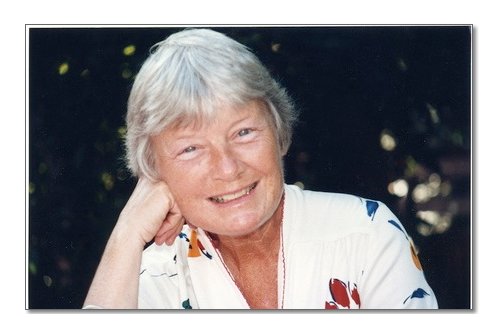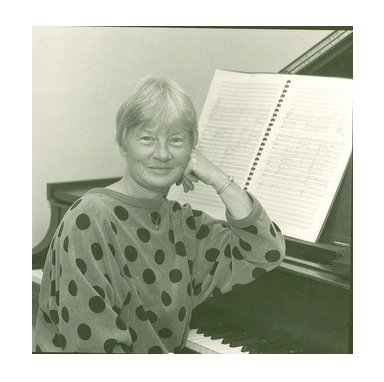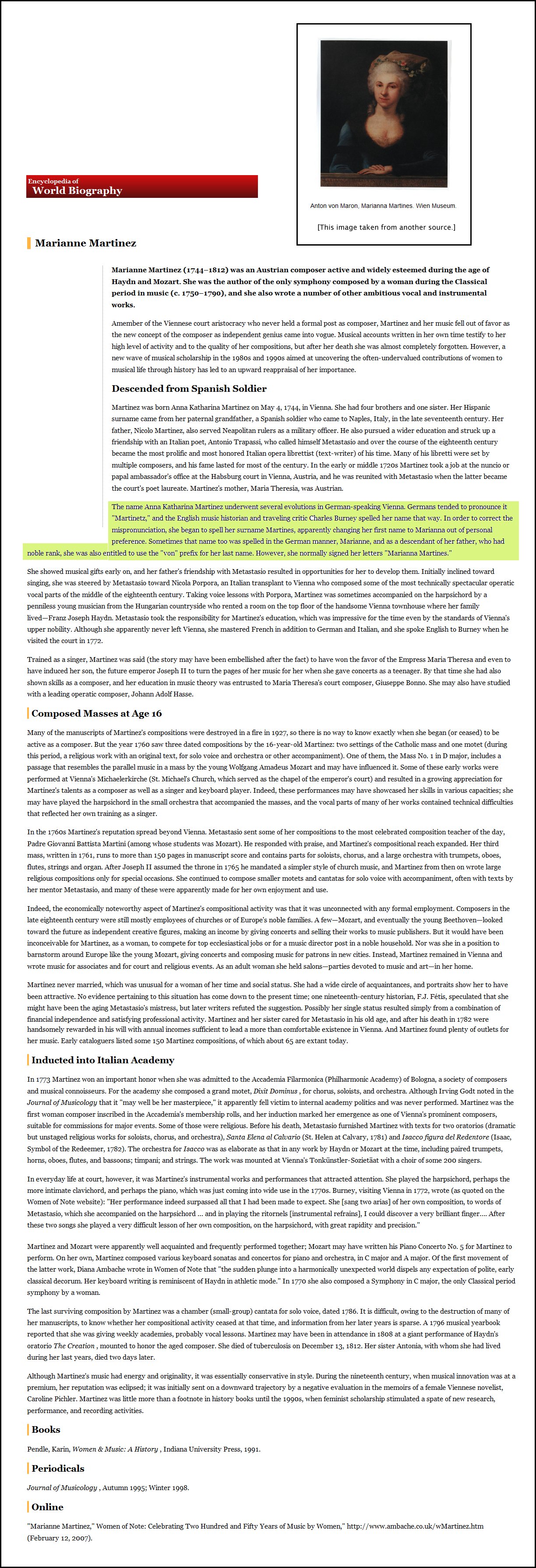

| Emma Lou Diemer (b. 1927) is a
native of Kansas City, Missouri. She studied piano from an early age,
wrote little piano pieces as a child, and began to play the organ at
age 13 in the First Christian Church in Warrensburg, MO where the
family had moved; her father having become president of Central MO
State College. She determined to be a composer about that time with a
strong interest also in piano, taking lessons at the K.C. Conservatory
with Wiktor Labunski. After high school she elected to major in composition in a school of music rather than attend a liberal arts college. Her degrees in composition are from the Yale School of Music (BM,1949; MM, 1950) and from the Eastman School of Music (Ph.D.,1960). She further studied composition in Brussels on a Fulbright Scholarship (1952-53) and at the Berkshire Music Center (summers of 1954, 1955). From 1954-57 she taught in several schools in the Kansas City area (Park College, William Jewell College, the K.C. Conservatory of Music) and was organist in area churches. After receiving the doctorate from Eastman she spent two years (1959-61) as composer-in-residence in the Arlington, VA schools under the Ford Foundation Young Composers Project. She wrote many choral and instrumental works while in Arlington, most of which were published. From 1962-65 she was a consultant for the Contemporary Music Project of the Music Educators National Conference, taught in the Arlington schools, and in 1962 became organist at Reformation Lutheran Church in Washington, DC. In 1965 she joined the faculty of the University of Maryland as an assistant professor of theory and composition. In 1971 she was appointed to a similar position at the University of California, Santa Barbara, and subsequently became a full professor and, since 1991, professor emeritus. Her present position as organist is at the First Presbyterian Church in Santa Barbara. She was instrumental in founding the electronic/computer music center at UCSB and helped to develop the Ph.D./DMA degrees in composition as well as other aspects of the curriculum. Through the years she has written many works of varying levels of difficulty from hymns and songs to concertos and symphonies. Awards for her compositions include a Louisville Student Award for a suite for orchestra, the Arthur Benjamin Award for "Quiet Music" from Eastman for the second movement of her 2nd symphony/dissertation, an ASCAP award received annually since 1962 for performances and publications, a Kennedy Center Friedheim Award in Orchestral Music for her 1991 piano concerto, and others. She was composer-in-residence with the Santa Barbara Symphony from 1990-92, and the 1995 Composer of the Year of the American Guild of Organists. Her music has been published by Boosey & Hawkes, Carl Fischer, Oxford University Press, Arsis Press, Plymouth Music Company, Santa Barbara Music Publishing, Seesaw Music Corporation, and others. Some of her chamber and orchestral music has been recorded on Crest, North/South Consonance, Contemporary Record Society, Master Musicians Recordings, Leonarda, and others. |
 ELD: If it sounds
interesting. People
often ask me to write something for them, and sometimes it’s not a paid
sort of thing. For instance, I’ve written some of my best
music for people on the faculty of the university, or somebody who is a
good performer who’s not going to pay because they’re a friend.
Sometimes your best music comes about
in that way. Some of my less successful music has
been a nice commission with a nice amount of money for it, but in some
cases
it was to-order. Maybe the people I was writing it for wanted
something exactly like something like they’d heard before. That’s
always hard to do, to turn back the clock in years for
something that’s a replica of something written earlier.
ELD: If it sounds
interesting. People
often ask me to write something for them, and sometimes it’s not a paid
sort of thing. For instance, I’ve written some of my best
music for people on the faculty of the university, or somebody who is a
good performer who’s not going to pay because they’re a friend.
Sometimes your best music comes about
in that way. Some of my less successful music has
been a nice commission with a nice amount of money for it, but in some
cases
it was to-order. Maybe the people I was writing it for wanted
something exactly like something like they’d heard before. That’s
always hard to do, to turn back the clock in years for
something that’s a replica of something written earlier.
© 1988 Bruce Duffie
This conversation was recorded on the telephone on April 16, 1988. Portions were broadcast on WNIB in 1997, and because of this encounter, some of her music was included as part of the in-flight entertainment package aboard Delta Airlines during the period of July-August, 1987. This transcription was made in 2015, and posted on this website at that time. My thanks to British soprano Una Barry for her help in preparing this website presentation.
To see a full list (with links) of interviews which have been transcribed and posted on this website, click here.
Award - winning broadcaster Bruce Duffie was with WNIB, Classical 97 in Chicago from 1975 until its final moment as a classical station in February of 2001. His interviews have also appeared in various magazines and journals since 1980, and he now continues his broadcast series on WNUR-FM, as well as on Contemporary Classical Internet Radio.
You are invited to visit his website for more information about his work, including selected transcripts of other interviews, plus a full list of his guests. He would also like to call your attention to the photos and information about his grandfather, who was a pioneer in the automotive field more than a century ago. You may also send him E-Mail with comments, questions and suggestions.